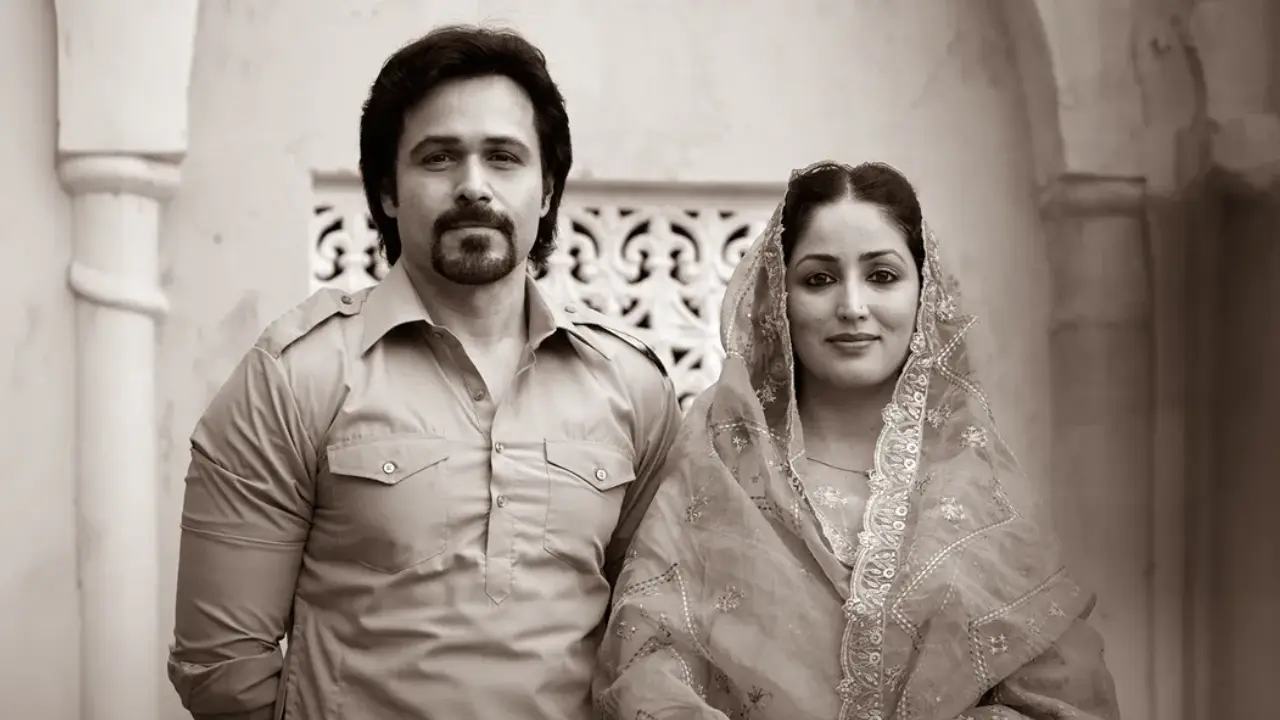Haq starring Emraan Hashmi, Yami Gautam and Vartika Singh is a heartfelt and timely film that digs beneath the surface of marital vows, religious customs, and the meaning of justice, and it does so with surprising restraint and emotional intelligence. The film centres on Shazia, a modest woman from a small community, whose life begins with hope and stability when she marries Abbas, a lawyer. But the facade of her “perfect” married life collapses when Abbas takes on a second wife and then emits a cold triple-talaq. What follows is Shazia’s transformation from a woman accustomed to silence and acceptance to someone who finds her voice in the courtroom.
Navigating the right to be respected and have their own identity through Shazia`s lens
One of the strongest aspects of the movie is how it treats its protagonist not as a victim to be pitied, but as a deeply layered individual capable of defiance and dignity. Shazia’s small-town roots, her unfamiliarity with legal jargon, and her struggle with faith and self-worth are all handled with subtlety. The lead actress brings authenticity to the role; her early confusion, heartbreak, and eventual resolve ring true, and she doesn’t rely on melodrama to evoke her pain. Her partner on screen, as her husband-lawyer, is also a surprise: rather than exaggeration or caricature, he is calm, professional, morally ambiguous, and quietly devastating when the betrayal surfaces. Their on-screen chemistry lays the emotional foundation for the rest of the film to build on.
The film is at its best when it keeps things grounded, when Shazia sits in the living room trying to understand suddenly changed circumstances, or when she goes to the mosque, not for crowd-pleasing speeches, but for quiet internal reckoning. The visuals support this tone: the domestic spaces, the small-town streets, and the hushed legal chambers all feel lived-in, not stage-set. The effect is that when conflict erupts, it hits harder because it feels earned. What makes the story even more compelling is the decision to avoid easy binaries: instead of turning religions, traditions, or genders into good vs. evil, the film probes how systems, even when well-intentioned, can let down individuals.
The flaws in the film
Yet, for all its strengths, the film isn’t entirely without flaws. The second half, especially once the legal proceedings move into full swing, occasionally slips into familiar territory—dramatic speeches, courtroom revelations, the ticking-clock montage. At times, the pace flags or the emotional beats seem squeezed together, as if the movie is trying to cover a lot of ground in limited runtime. Some supporting characters feel underdeveloped, the wife’s lawyer (Sheeba Chadha), the husband’s allies, even though they play pivotal roles in the story. It leaves you wishing for a deeper dive into their motivations and arcs.
Still, even with these caveats, Haq succeeds in what it sets out to do: it makes you think, feel and question. It reminds us that “justice” isn’t just about laws and verdicts, but about agency, dignity and the sometimes messy intersection of tradition and change. If you’re looking for a film that isn’t just about a legal case but about a woman reclaiming her life and identity, this one strikes a chord. It may not reinvent the courtroom drama, but it elevates it with heart, honesty and an unflashy courage.

